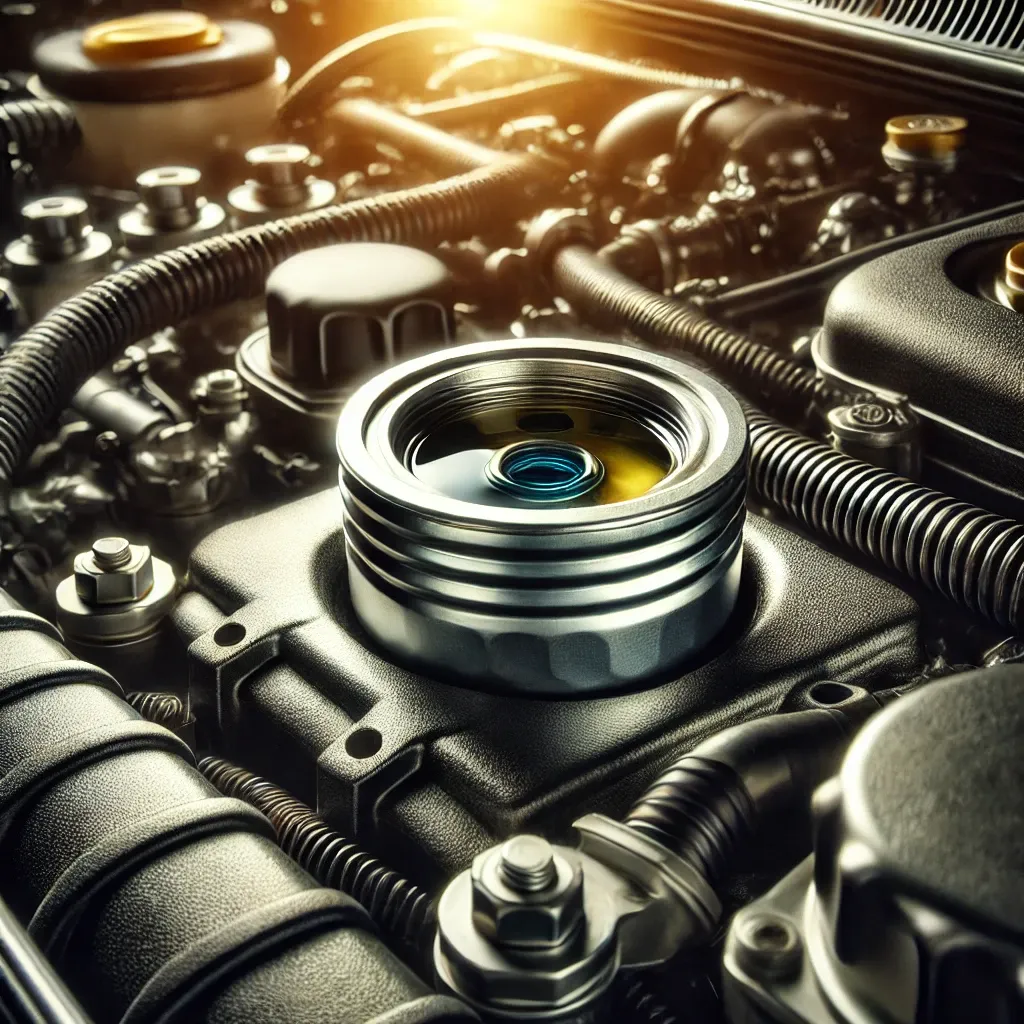Have you ever wondered how engine oil keeps your car running smoothly? Discover the critical role of engine oil, the function of car engine oil, and how engine oil filters contribute to engine longevity and performance.
Engine oil plays a crucial role in maintaining the smooth operation of a vehicle’s engine. It helps lubricate moving parts, cools the engine, and prevents corrosion. Without engine oil, the engine would overheat, and metal parts would wear down quickly, potentially leading to catastrophic failure. This article explores the significant role engine oil plays in a vehicle’s overall performance, the unique function of car engine oil, and the importance of engine oil filters.
The Role of Engine Oil
Engine oil serves as a lubricant, cooling agent, and cleaning solution for the engine. Without this essential fluid, your car’s engine would rapidly deteriorate due to friction and heat. Here’s a breakdown of the core roles that engine oil plays:
-
Lubrication Oil reduces friction between the moving parts of the engine, such as pistons, valves, and camshafts. Without proper lubrication, these parts would grind against each other, causing excessive wear and tear.
-
Heat Dissipation Engine oil helps disperse heat away from critical engine components. It absorbs heat generated by the engine’s combustion process and carries it to areas where it can be safely dissipated.
-
Cleaning Engine oil picks up debris, dirt, and other contaminants that can damage the engine. It carries these contaminants to the oil filter, where they are trapped and prevented from circulating through the engine.
-
Corrosion Prevention Engine oil helps protect metal parts from rust and corrosion by forming a protective layer on exposed metal surfaces.
-
Sealing Oil helps seal gaps between engine parts, such as between the piston rings and cylinder walls. This improves compression and reduces the loss of power.
The effectiveness of engine oil depends on its viscosity and quality. As oil breaks down over time due to heat and contaminants, it needs to be replaced regularly to maintain the engine’s performance.
Car Engine Oil Role
Car engine oil serves a critical function in ensuring the engine’s longevity and efficiency. Here are specific aspects that highlight the importance of car engine oil:
-
Ensuring Optimal Engine Temperature Car engines can reach extremely high temperatures, and engine oil plays a crucial role in keeping these temperatures within safe limits. Oil circulates throughout the engine, absorbing and distributing heat to prevent overheating.
-
Preventing Engine Wear Continuous use of a car engine generates friction between moving components. Car engine oil reduces this friction, preventing metal-on-metal contact and subsequent wear. Over time, worn engine parts can result in performance issues and expensive repairs.
-
Improving Fuel Efficiency High-quality engine oil ensures that the engine operates efficiently by minimizing friction and reducing resistance. This leads to better fuel efficiency and a smoother driving experience.
-
Supporting Engine Performance Regular oil changes keep the engine running at its peak performance by ensuring that oil quality remains optimal. Old oil can cause the engine to perform poorly due to sludge and contaminants building up in the system.
-
Extending Engine Lifespan Proper maintenance with clean, high-quality engine oil significantly extends the life of a car’s engine. Replacing the oil at regular intervals helps protect against early engine failure.
Car manufacturers recommend specific oil types and intervals for oil changes, which should always be followed to ensure the engine operates at its best.
👉 Learn more about maintaining car engine oil 👈
Engine Oil Filter Role
While engine oil plays an essential part in engine function, it cannot do its job alone. The engine oil filter ensures the oil remains clean and free from harmful contaminants. Here’s why the oil filter is so important:
-
Filtering Contaminants The engine oil filter is responsible for trapping dirt, debris, and particles that may be present in the oil. Without a filter, these particles could damage engine components or cause the oil to lose its effectiveness.
-
Improving Oil Efficiency By filtering out impurities, the oil filter ensures that the oil remains clean and effective, maintaining the engine’s optimal performance. Clean oil also contributes to longer engine life and better fuel efficiency.
-
Reducing Engine Wear Oil filters prevent abrasive particles from circulating throughout the engine, reducing the risk of excessive wear and tear on internal components.
-
Supporting Proper Oil Flow The oil filter helps maintain the flow of oil throughout the engine by preventing clogging. A clogged oil filter can lead to oil starvation, potentially causing severe engine damage.
-
Promoting Clean Operation Regular oil filter changes are essential to keeping the engine running cleanly. A dirty or clogged filter can impair the oil’s ability to lubricate, dissipate heat, and protect against corrosion.
Changing the oil filter regularly is as important as changing the oil itself. Failing to do so can result in reduced engine efficiency and shorter engine lifespan.
👉 Find more about engine oil filter replacement 👈
Conclusion
Engine oil, car engine oil, and engine oil filters are all integral to a car’s performance and longevity. Engine oil lubricates and cools engine parts, improving efficiency and reducing wear. Car engine oil ensures the engine runs smoothly, while the oil filter helps keep the oil clean by removing harmful contaminants. Regular maintenance, including oil and filter changes, is essential to keeping your engine running efficiently and avoiding costly repairs.
Incorporating proper engine oil management practices into your car care routine ensures not only the protection of your engine but also the preservation of your vehicle’s overall performance. Keep your engine oil clean, replace it regularly, and change your oil filter to enjoy a well-maintained and durable vehicle.






